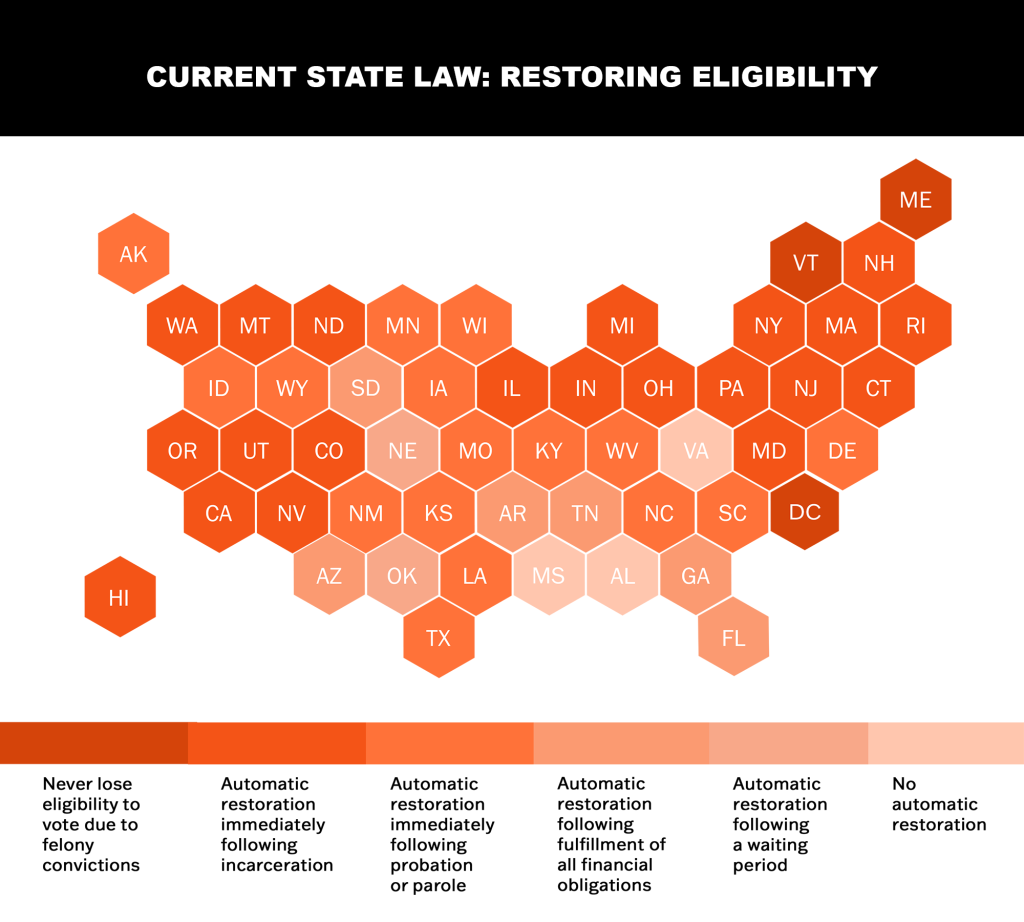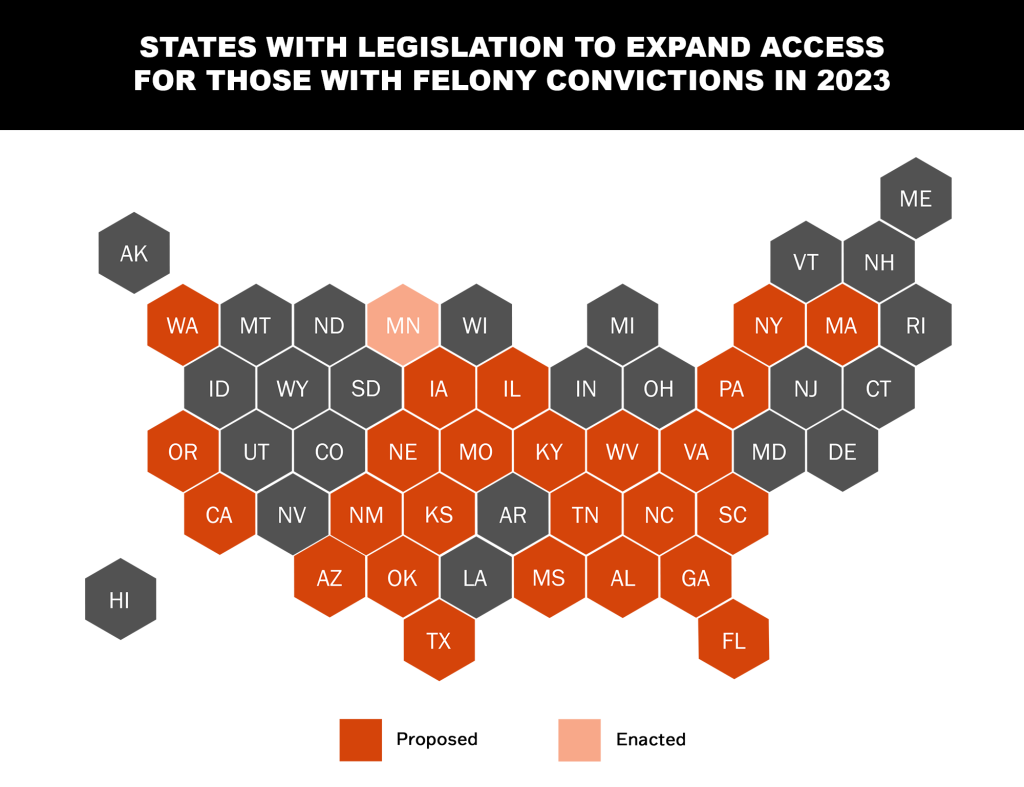Report
From Momentum to a Moment: Restoring the Vote to Those with Past Convictions
A decades-old conviction can deny a citizen’s access to the ballot box in some states – sometimes even for a lifetime. In fact, in the U.S. today, 4.6 million citizens – more than the entire population of the metropolitan areas of Seattle or Tampa – cannot vote due to a felony conviction, according to the Sentencing Project.
A nationwide patchwork of state constitutions and laws means that a person’s zip code determines whether or not they can vote. In 26 states, citizens with a past felony conviction who are living, working, and paying taxes in their communities cannot participate in our democracy. The good news is lawmakers are working to change this: more than 100 bills in 26 states introduced this year would improve voting access for those with a past felony conviction.
The national movement for voting rights restoration has never been stronger or more ideologically diverse. On the front lines, Black-led groups such as the Florida Rights Restoration Coalition and the PENNranchise Project have led the charge, maintaining focus on injustice and discrimination in our judicial system that sees Black Americans stripped of their freedom to vote at a rate 3.5 times greater than non-Black Americans. Elected leaders from U.S. Senator Rand Paul to Minnesota Gov. Tim Walz and organizations from Americans for Prosperity to the ACLU have all stepped up to express support for restoring the freedom to vote to those with past felony convictions.
And there is hope that, sometime soon, lifetime disenfranchisement will be a thing of the past: all three states without a system for automatic restoration have seen bills to create such a system pass – with bipartisan support – out of one legislative chamber over the past three years.
Current Law on Voting Rights Restoration
Before we dive into current bills, it’s important to understand where the law stands in the states today. In Maine, Vermont, and Washington, D.C., citizens do not lose their right to vote due to a felony conviction. After a new Minnesota law goes into effect in July, a total of 22 states will restore voting eligibility for those with a past felony conviction immediately following incarceration. 15 states will do so immediately following the completion of probation or parole periods, six following the fulfillment of all financial obligations, and two after the completion of a mandatory waiting period. Just three states will remain – Alabama, Mississippi, and Virginia – with no process for automatic restoration of voting rights.

Momentum for Change in Recent Years
Momentum is at the heart of the story today when it comes to restoring voting rights for those with past felony convictions. Since 2021, 33 states have seen legislation to improve voting access for people with felony convictions. In that short time, 11 states have done so.
In 2020, Iowa Governor Kim Reynolds signed an executive order that restored voting eligibility to citizens upon completion of probation or parole, removing Iowa from the short list of states where felony convictions resulted in lifetime prohibitions on voting, thereby restoring the freedom to vote for 50,000 – 60,000 Iowans. Soon after, Connecticut (2021), New York (2021), Washington (2021), and recently Minnesota (2023) each enacted laws to restore voting eligibility upon release from incarceration – restoring the freedom to vote for an additional 100,000 people across those four states by no longer restricting access for those serving out the terms of their probation or parole.
Over that same period, other states passed legislation to facilitate voting by people with past felony convictions. Arizona and Louisiana, for example, recently enacted legislation streamlining their respective restoration processes by removing unnecessary barriers to voting for people with past felony convictions.
Momentum Continues in 2023
Minnesota’s new law may be only the beginning of the story in 2023. Of the 26 states with 115 individual pieces of legislation we’re tracking this year:
- Eight states have introduced or advanced legislation to end disenfranchisement due to a felony conviction altogether. One notable example is in Oregon, where S.B. 579 took a strong step forward with a favorable committee vote earlier this month;
- Nine states have introduced or advanced bills to restore access immediately upon release from incarceration. One notable example is in Missouri, where S.B. 376 was passed with unanimous support by the Senate Local Government & Elections Committee on March 20;
- Six states have introduced or advanced bills to restore access upon completion of probation or parole; and
- Three states have introduced or advanced bills to restore access after the completion of a waiting period.

Check out our State Voting Rights Tracker to learn more about disenfranchisement and voting rights restoration for those with past felony convictions – and to see what may still be to come in 2023.